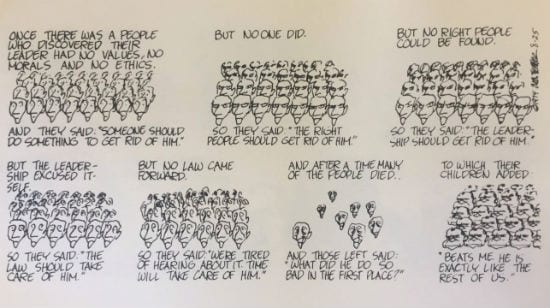Ethanol, the gasoline substitute produced from corn or wheat, seems to be an outlandish boondoggle.
While promoted as a clean, efficient source of energy, it seems in fact to be a colossal waste of energy and a massive source of air and water pollution.
Ethanol exists only because of taxpayer subsidies. It is a purely political creation — something no market would ever demand or sustain.
To produce ethanol, you have to grow corn. A lot of corn. And the way we grow corn nowadays involves the burning of fossil fuels. A lot of fossil fuels.
We can thus ask a very simple question. How many gallons of gasoline does it take to produce the ethanol equivalent of the energy provided by one gallon of gasoline?
If the answer is less than one, then ethanol may well hold some promise as a net source of energy. If the answer is one or greater, then ethanol production is a ridiculous waste of time and resources — a fool's machine that laboriously converts a gallon of gas into half a gallon of gas.
Dr. Tad Patzek, a petroleum and chemical engineer at UC Berkeley, has researched this question. He has carefully studied the amount of energy consumed in producing ethanol versus the amount of energy produced.
"Ethanol production from corn is a fossil-energy-losing proposition," Patzek told the Canadian National Farmer's Union:
In most facilities, ethanol is distilled from grain. That grain is produced using large amounts of fossil fuels. With detailed data and references to numerous comparable studies, Patzek demonstrated that the actual energy used to produce a corn feedstock — energy contained in fuels, fertilizers, transport, machinery construction, etc. — exceeds that amount of energy available when the ethanol is burned. …
Patzek's analysis shows that the quantity of fossil fuels needed to produce a wheat or corn feedstock would exceed the amount of fossil fuels replaced by the resulting ethanol. A "negative energy balance" means that burning ethanol increases, not decreases, total fossil fuel consumption.
What's more, Patzek says, ethanol production consumes vast amounts of water and results in harmful emissions. It's a filthy waste.
So why, it's fair to ask, is the state of Illinois redoubling its efforts at ethanol production? Why does the now-postponed omnibus White House energy bill include measures to double the production and use of ethanol in the United States? And why does that bill include, according to Carl Hulse in The New York Times, "$12 million to be spent on centers at the University of Mississippi and the University of Oklahoma for research on ethanol"?
I would support one ethanol proposal for federal funding. I would like to see a model farm designed and operated for ethanol production. But all the energy consumed on that farm and in the ethanol plant must eventually come from the ethanol produced there. When I see such an operation functioning sustainably as a net producer of energy then, and only then, will I be convinced that Dr. Patzek is wrong, and that the perpetual motion machine promised by ethanol's boosters is worth the billions it is costing taxpayers.












